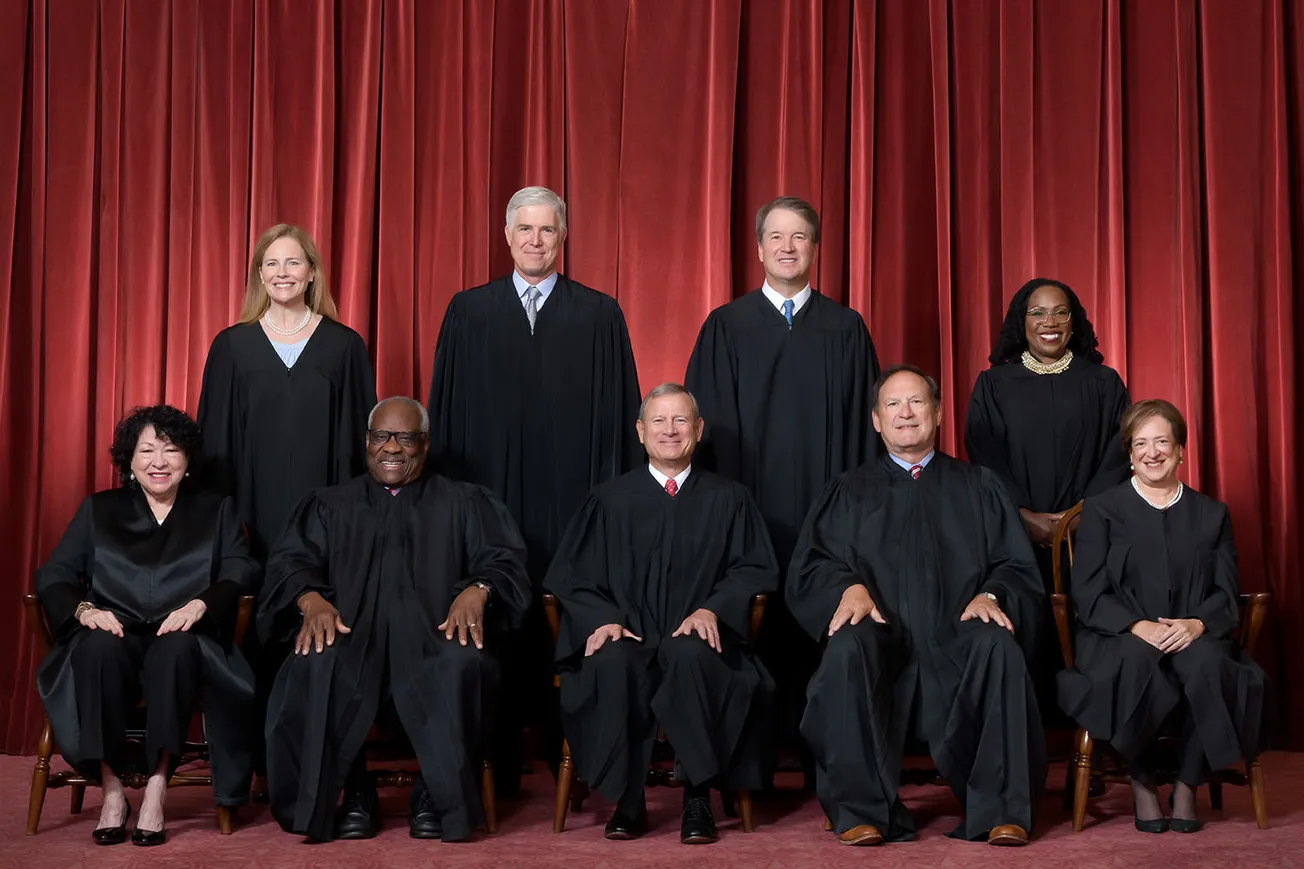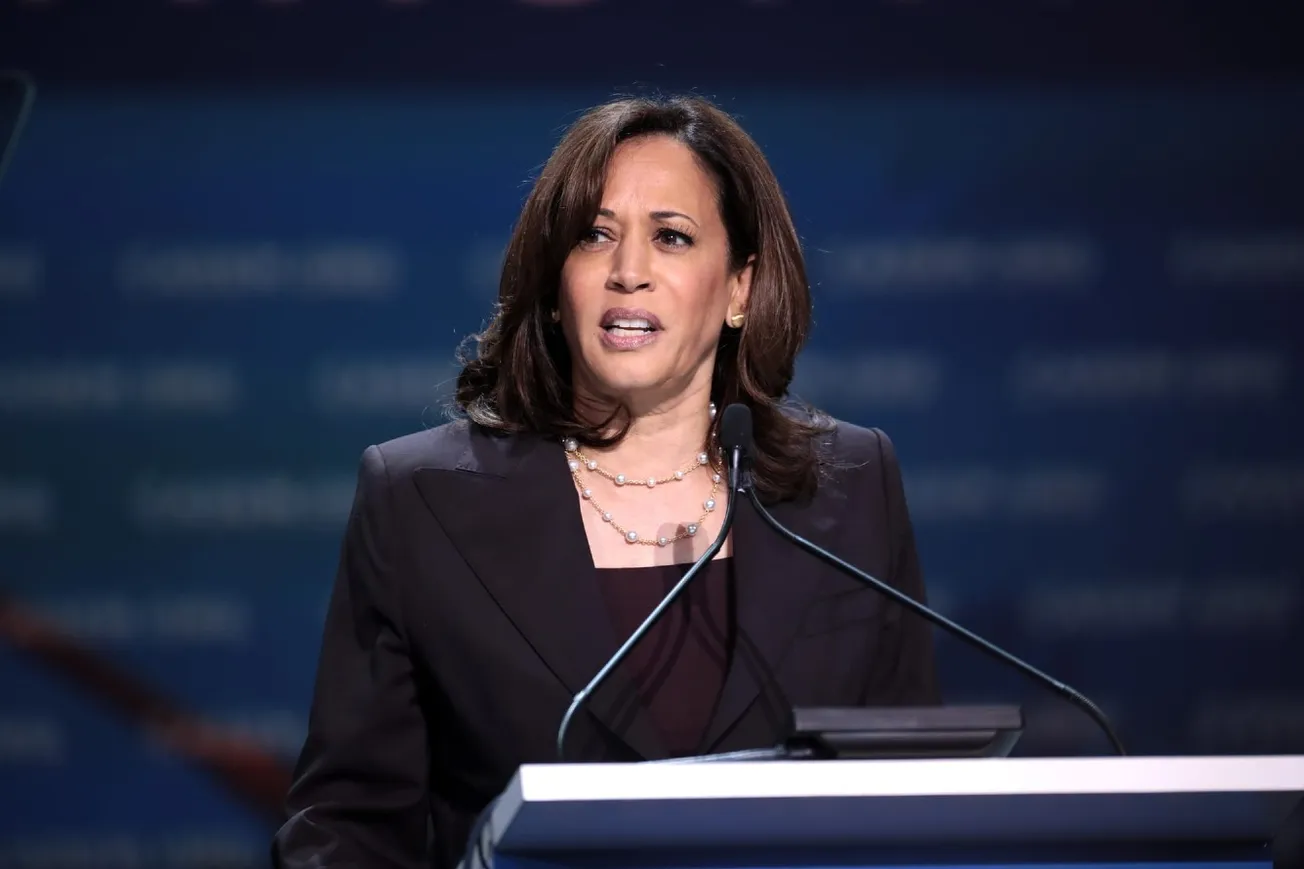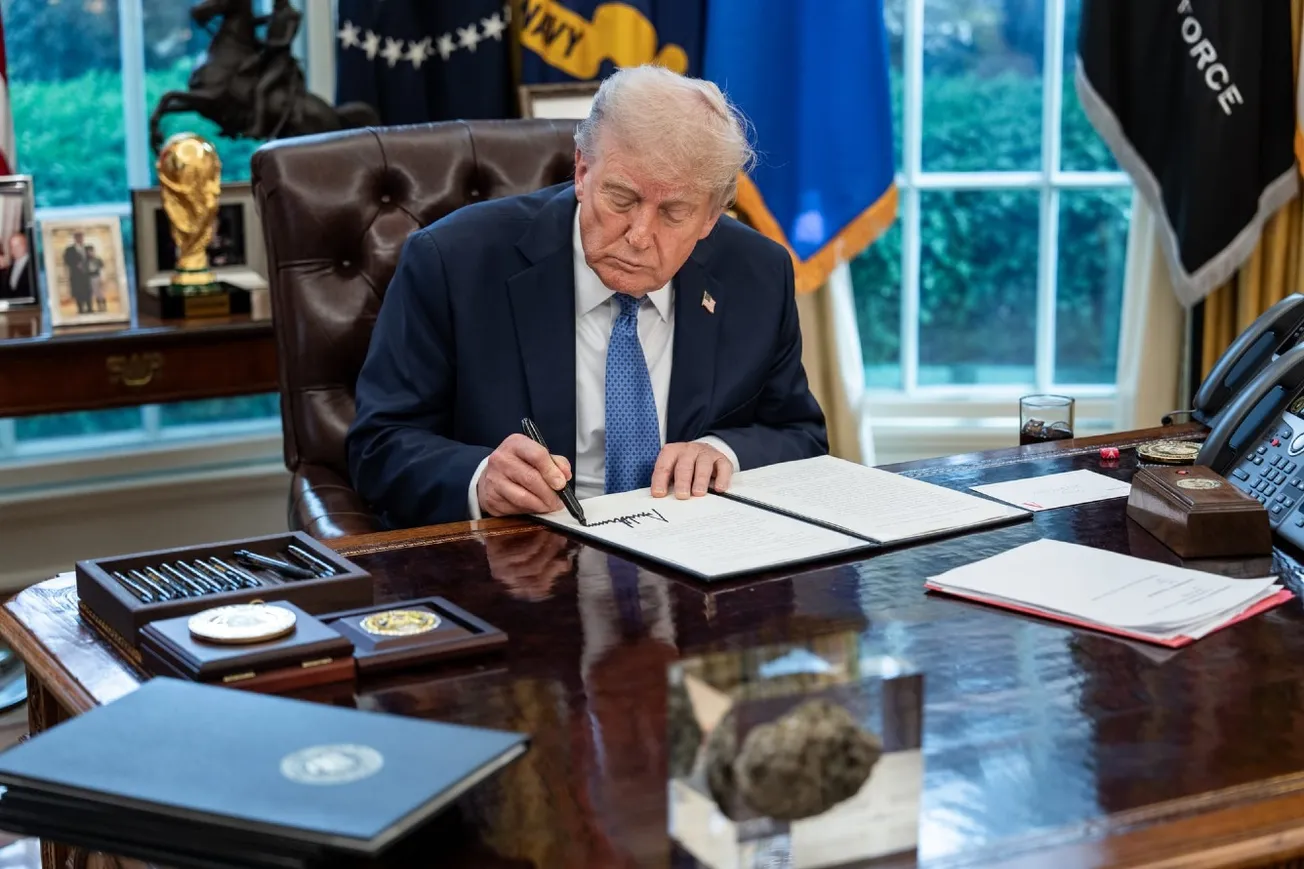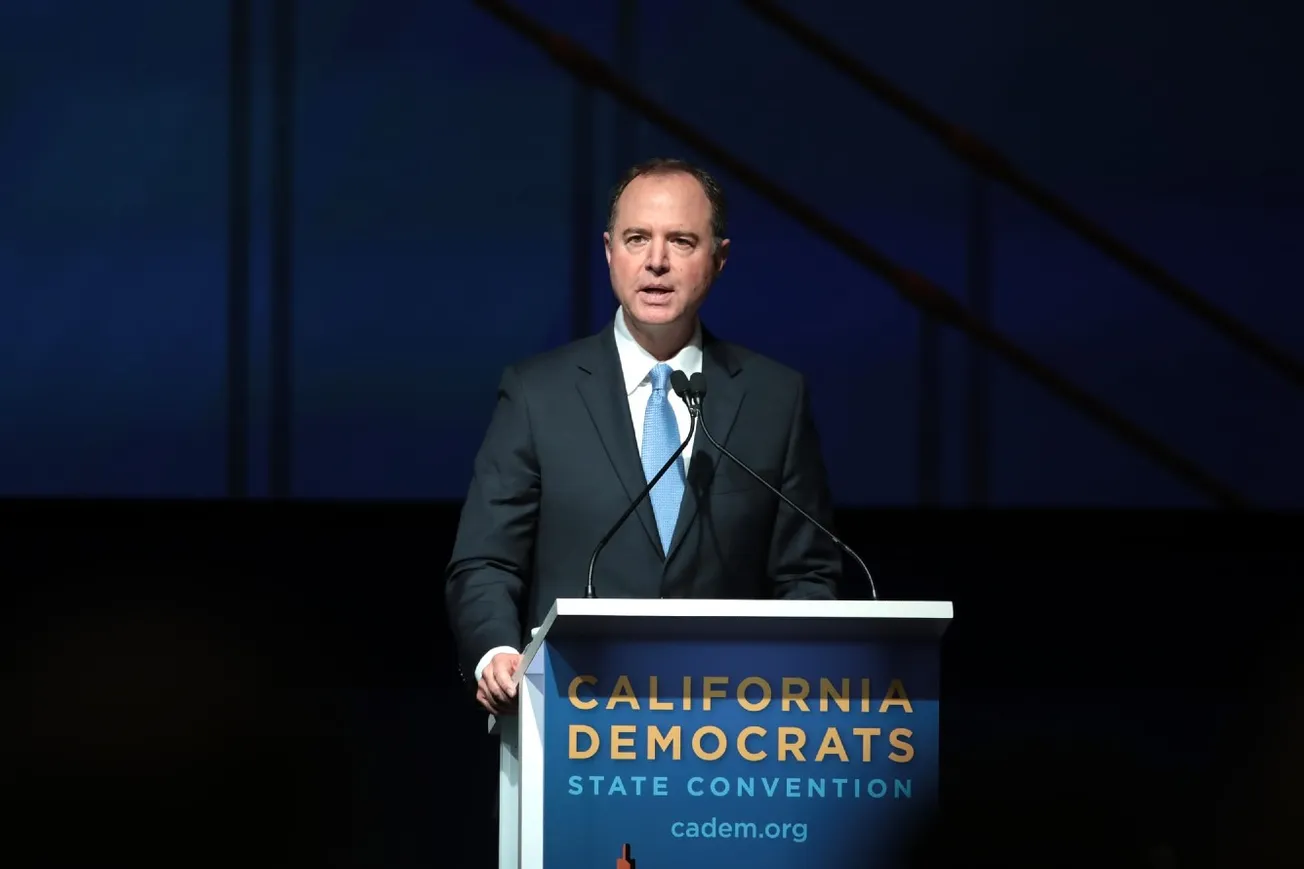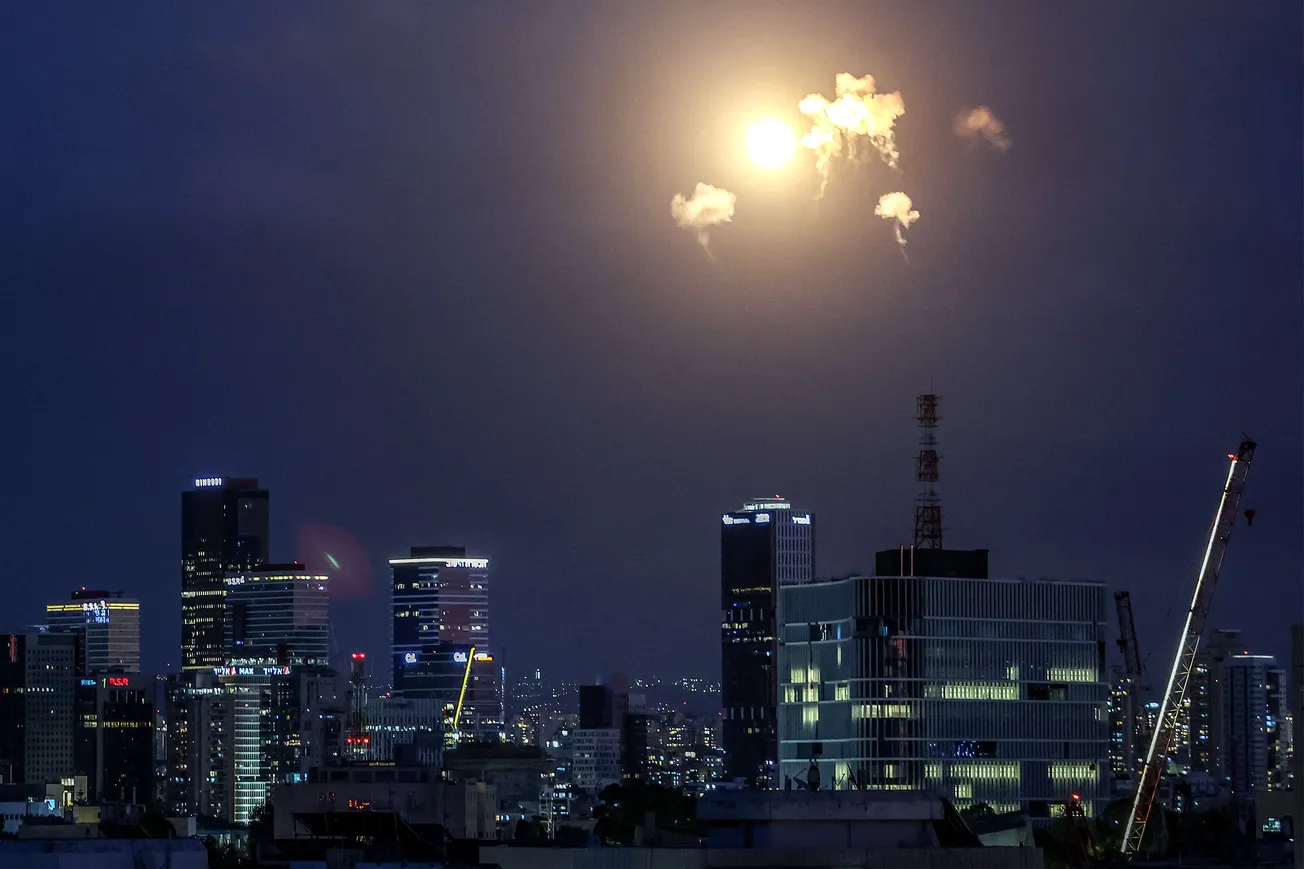As former President Donald Trump continues his march to the Republican nomination and a rematch against President Biden, conventional wisdom has maintained that support for Trump would fall if he were criminally convicted in a court of law. But what if the United States Supreme Court overturns his conviction?
Several courts could uphold Trump's conviction in front of a jury where he has been criminally charged - New York City (Alvin Bragg), Washington DC (Special Prosecutor Jack Smith), Miami (Jack Smith), and Georgia RICO (Fani Willis) - although the most immediate threat is the Bragg case in New York.
The Manhattan District Attorney has tailored together an ambitious suit to say that Trump violated federal campaign laws when he paid hush money to Stormy Daniels. The federal government found the case so weak that it passed on adding this as a criminal charge when Jack Smith handed out his criminal indictments in Washington and Miami. Campaign finance violations are civil in nature, not criminal.
Trials have not yet begun in the federal cases in Washington and Miami, so the chance that a jury would return a criminal conviction before the election is slim. Department of Justice rules are clear that no federal action should be pursued to help affect an election's outcome. Given the District Attorney's conduct in Georgia, the RICO case is a mess, and the entire case could slow down or even be dismissed.
But what if Trump were held guilty of a crime in any of the above cases? Trump would have to appeal the Georgia conviction to the Georgia Supreme Court and, upon receiving an unfavorable verdict, could appeal to the United States Supreme Court, which would probably accept the request. Because the Washington, Miami, and Manhattan DA cases are based on federal law, each is eligible to be appealed to the Supreme Court.
So, how would the Supreme Court rule? If Monday's landmark ruling on Colorado's decision to remove former President Trump from that state's primary ballot provides clues, the Court could dismiss a criminal conviction.
Although the bottom-line decision in the Colorado case was 9-0, the three liberal justices (Sotomayor, Kagan, and Jackson) dissented vigorously on a crucial aspect. At issue was Section 3 of the 14th Amendment:
Section 3 Disqualification From Holding Office
- No person shall be a Senator or Representative in Congress, or elector of President and Vice-President, or hold any office, civil or military, under the United States, or under any State, who, having previously taken an oath, as a member of Congress, or as an officer of the United States, or as a member of any State legislature, or as an executive or judicial officer of any State, to support the Constitution of the United States, shall have engaged in insurrection or rebellion against the same, or given aid or comfort to the enemies thereof. But Congress may, by a vote of two-thirds of each House, remove such disability.
While the section is limited to insurrection, five conservative justices of the Supreme Court ruled that "the Constitution makes Congress, rather than the states, responsible for enforcing Section 3 against federal officeholders and candidates."
Translation: To punish a presidential candidate for insurrection, Congress alone has the authority to pass laws laying down terms under which an insurrectionist can be prosecuted and found guilty in federal Court. Overzealous and partisan individuals could use the existing patchwork of county, state, and federal laws to deny voters their right to choose and create mayhem and chaos into and beyond an election.
An evolving electoral map could dramatically change the behavior of voters, parties, and states across the country, in different ways and at different times. The disruption would be all the more acute — and could nullify the votes of millions and change the election result — if Section 3 enforcement were attempted after the nation has voted. Nothing in the Constitution requires that we endure such chaos — arriving at any time or different times, up to and perhaps beyond the inauguration.
Therefore, disqualifying a candidate from holding high federal office should be left to Congress.
The three liberal justices complained that the majority did not have to touch this part of Section 3 as it was not under question in the Colorado case. Understanding how difficult it is to get anything passed in Congress, they wrote that "the majority attempts to insulate all alleged insurrectionists from future challenges to their holding federal office."
During the oral arguments in the Colorado case, Justice Kavanaugh pointed out that Trump had not been charged with insurrection in any court (an apparent reference to Jack Smith's charges in Washington), nor had he been convicted. A majority of justices seemed sympathetic to the argument that the bar to criminally prosecute presidential candidates, certainly leading ones, should be markedly higher, such as express instructions from Congress.
It is always a stretch to imagine how the justices would vote in a criminal case different from an insurrection, a severe charge at the heart of the American democratic experience. Compared to insurrection, Trump's other charges, such as a campaign violation, seem rather lame. Extending this logic, the Supreme Court could conclude that only Congress could adjudicate Trump's crimes when he was in office. Which Congress has, considering that it impeached him in the House and acquitted him in the Senate.

